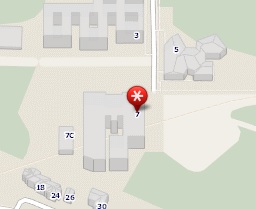Vilniaus universitetas
Rugsėjo 22 d. vyks 2 seminarai
Rugsėjo 22 d. Biotechnologijos instituto Mikroskysčių technologijų sektoriuje besisvečiuojantys Prof. Hirotada Mori (Graduate School of Biological Sciences, Nara Institute of Science and Technology, Japan) ir Prof. Barry L. Wanner, Microbiology and Immunobiology Harvard Medical School,USA) skaitys pranešimus. Seminarų pradžia - 13 val., tarp seminarų planuojama trumpa, apie 15 min. trukmės, pertrauka. Seminarai vyks R-101 auditorijoje.
Pranešimų trumpos anotacijos:
Prof. Hirotada Mori
Title: Monitoring population dynamics of Escherichia coli K-12 in stationary phase - An application of the new resource of E. coli -
Abstact: We monitored population changes in mixed-cultures of our recently developed single-gene deletion mutant library of Escherichia coli K-12 carrying molecular bar-codes. Our bar-coded library is similar to the single-gene deletion Keio mutant library, except target genes were replaced with a chloramphenicol instead of a kanamycin resistance cassette and deletions have unique 20-nt molecular bars juxtaposed priming sites. We previously showed how our Keio and bar-coded single-gene deletion mutant libraries can be used together to analyze genetic interaction systematically by constructing double mutants via conjugation. Here we demonstrate how our bar-coded single-gene deletion mutant library can be used to identify genes whose absence loss leads to enhanced or reduced survival under different growth conditions. In brief, we created a seed culture by combining equal portions of each bar-coded deletion mutant from individual over-night cultures. We monitored the population dynamics of cultures inoculated from the seed culture during long-term stationary phase growth by deep-sequencing of the PCR-amplified bar-code region. Our preliminary studies showed that mutator deletion mutants rapidly accumulated during stationary phase. Accordingly, we conducted our long-term stationary phase growth studies in complex, glucose minimal, and glycerol minimal media inoculated with seed cultures without mutator mutants. Our results are discussed. Also, I will show the current progresses about the genetic interaction of E. coli by double knockout method.
Kviečiame dalyvauti.













